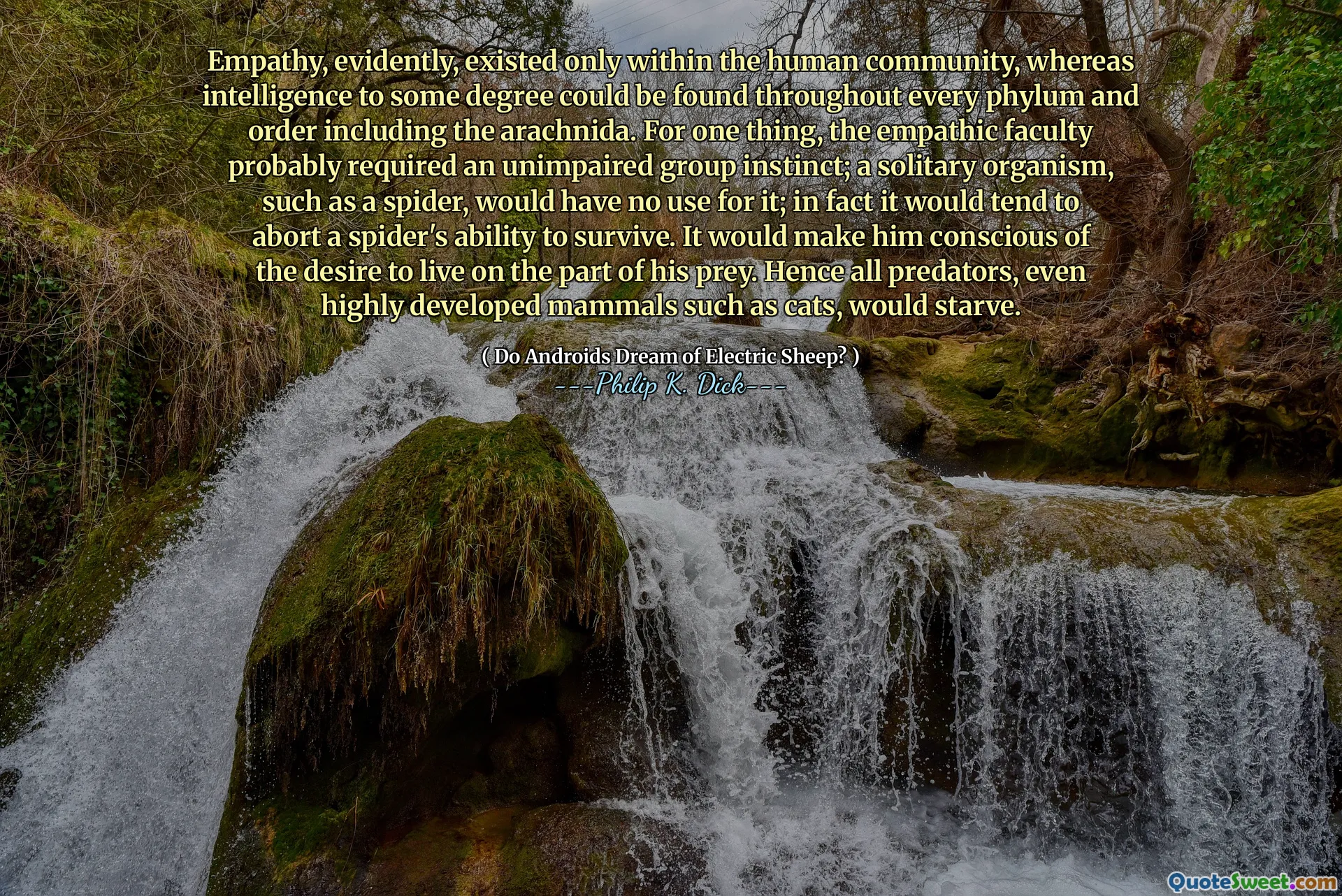
Empathy, evidently, existed only within the human community, whereas intelligence to some degree could be found throughout every phylum and order including the arachnida. For one thing, the empathic faculty probably required an unimpaired group instinct; a solitary organism, such as a spider, would have no use for it; in fact it would tend to abort a spider's ability to survive. It would make him conscious of the desire to live on the part of his prey. Hence all predators, even highly developed mammals such as cats, would starve.
In Philip K. Dick's "Do Androids Dream of Electric Sheep?", the contrast between empathy and intelligence is explored. Empathy appears to be a trait unique to humans, requiring social connections and group instincts. In contrast, intelligence is more widespread throughout various life forms, including arachnids. This indicates that while many creatures may exhibit intelligence, the capacity for empathy might be reserved for those living in communities.
Furthermore, the mention of solitary predators like spiders highlights the potential drawbacks of empathy in their survival. A spider does not benefit from empathizing with its prey, as such awareness could hinder its ability to hunt effectively. This suggests that in the animal kingdom, the instinct to survive often outweighs emotional capabilities, emphasizing the complex relationship between survival instincts and emotional sensitivity within different species.











